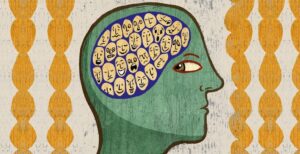
We All Have Parts
By Dr. Sean, PsyD
We all have parts. These parts are sometimes the voices in our head offering guidance, sometimes they are the behaviors we wish we didn’t have like overindulging in sweets or lashing out at those we love. Sometimes there are parts in conflict with one another, part of me wants to go to the gym but another part of me is quite comfortable here on the couch binging Netflix. Some parts we like and others we loathe.
It is often the parts we detest that cause conflict for us, the depressed part, the anxious part, the part that drives others away, the self-critic, or the part that drinks a little too much. But what if we could help unburden those parts? What if we could create an internal world of connection, confidence, and compassion? By befriending all our parts, we can gain a better understanding of when they took on their burdens, we can learn to have empathy for these parts and help them to move past their traumas and become more effective and useful in their roles.
This form of therapy is known as Internal Family Systems (IFS) and it is an intervention I use regularly in my practice. I am constantly amazed by the profound changes clients experience when they begin to look inward and change their relationship with parts of themselves that they wish did not exist. If you are interested in learning more about this form of therapy and your own parts, I highly recommend reading the book No Bad Parts by Richard Schwartz, the founder of IFS.
There may be a part of you that wants to begin therapy, but another part this is afraid of reaching out. To the part that may be afraid, I encourage you to get to know what it is afraid of and offer it reassurance that it is not alone in its fear. Our team at the Scott Hines Behavioral Health Clinic is here to help and we hope that if you are in need, you will take the first step and reach out. We offer individual, couples, family, and group support. To learn more, please visit
https://thecentercv.org/en/scott-hines-behavioral-health-clinic
*This is for informational purposes only and is not a substitute for professional counseling. The information may not apply to everyone.
